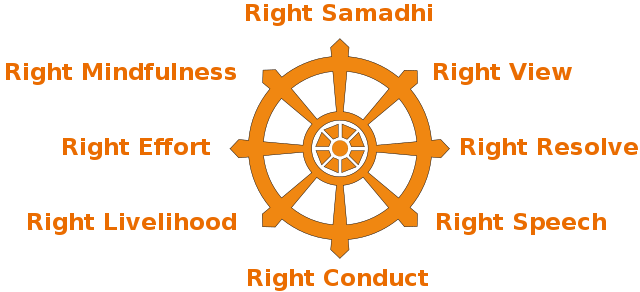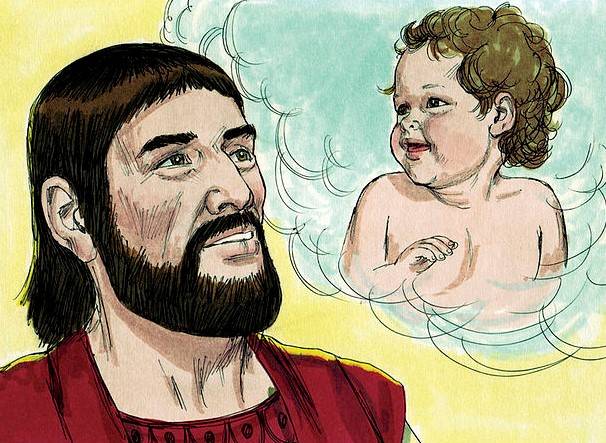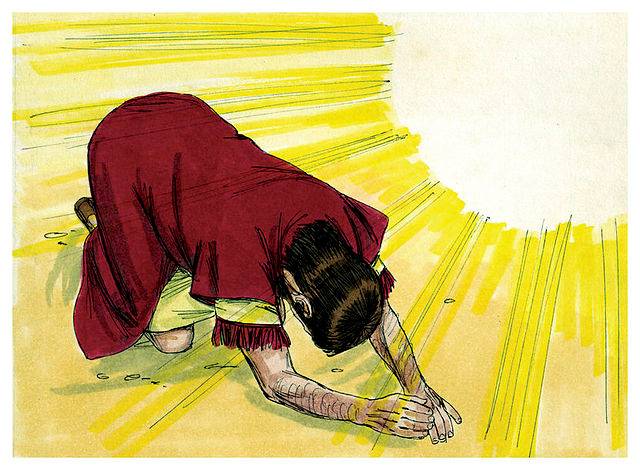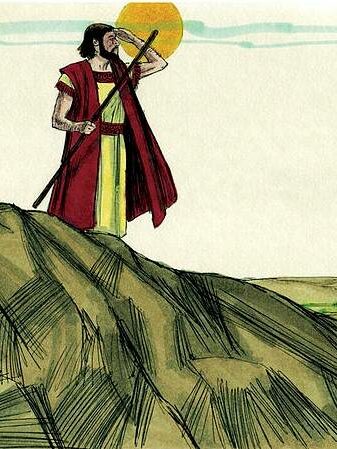The classical path (marga or magga) to reach liberation (or vimutti) is the Noble Eightfold Path. The Sutta Pitaka gives the Noble Eight-fold Path like this:
“The Blessed One said, ‘Now what, monks, is the Noble Eightfold Path? Right view, right resolve, right speech, right action, right livelihood, right effort, right mindfulness, right concentration [samadhi]'”
Thanissaro Bhikkhu. 1996. Magga-vibhanga Sutta: An Analysis of the Path.
Classical Buddhist teaching further explains these Eight-fold virtues:
- Right view clears one’s path from confusion, misunderstanding, and deluded thinking.
- Right resolve; the practitioner resolves to leave home, renouncing the worldly life and dedicating themselves to an ascetic pursuit.
- Right speech constitutes abstaining from lying, from divisive speech, from abusive speech, and from idle chatter.
- Right action requires abstaining from killing, abstaining from stealing, abstaining from sexual misconduct.
- Right livelihood entails living by begging, but not accepting everything and not possessing more than is strictly necessary.
- Right effort arouses the will to exert effort to combat sensual thoughts, doubts about the path, restlessness, drowsiness, and ill will of any kind.
- Right mindfulness aids one to not crave and cling to any transitory state or thing, by complete and constant awareness of phenomena as impermanent and without self.
- Right concentration (Samadhi) is a one-pointedness of mind. This concentration surmounts the distractions of life to achieve a state of awareness where the distinction between any object or subject disappears.

Ian Alexander, CC BY-SA 4.0, via Wikimedia Commons
What Is Noble? The Path or Person on It?
The Noble Eight-fold Path is not the only path or marga for Buddhists. Other traditions include the Sarvastivada, the Bodhisattva, and the Lamrim paths in Tibetan Buddhism. These vary simply in the number and order of right efforts but they are not very different from the well-known Eight-fold Path.
What many do not realize is that in the original Pali texts, the adjective ‘noble’ is not describing the path or the marga, but the person who follows the Eight-fold path. A better translation of the Noble Eight-fold path could be ‘Eight-fold path of the noble ones’.
Evident in reviewing the path laid out in the Pali texts, only a very noble person could hope to even just attempt this path of eight virtues.

Chris Sloan, CC BY-SA 2.0, via Wikimedia Commons
Abraham and the Path for the Less-Than-Noble
But then what about the vast majority of the rest of us who are not so noble? Who do not have the nobleness of heart and mind to successfully follow these virtues?
We have been following the plan of the Creator God as revealed in the ancient Hebrew scriptures, the Bible. We saw that His plan to extend mercy to us centred on calling Abraham on a Journey to the West. Now we will see another path upon which Abraham led the way for us. This path, or marga, is for those of us who are less noble, those of us who have no hope to develop the right frames of mind as required by the Eight-fold path. In fact, the path that Abraham took was so simple that most miss it. Detailing below is how the ancient scriptures record the way in which the Creator God led Abraham to the path for ‘the less than noble ones’.
Abraham’s Complaint

Sweet Publishing, CC BY-SA 3.0, via Wikimedia Commons
Several years have passed in Abraham’s life since God uttered His Promise to Abraham. Abraham had moved to the Promised Land, which is Israel today, in obedience to that promise. Then other events occurred, except the one he longed for. He remained childless and thus had no son through whom God would fulfill His promise. So we continue the account with Abraham’s complaint:
1 After this, the word of the Lord came to Abram in a vision:
“Do not be afraid, Abram.
I am your shield,
your very great reward.”2 But Abram said, “Sovereign Lord, what can you give me since I remain childless and the one who will inherit my estate is Eliezer of Damascus?” 3 And Abram said, “You have given me no children; so a servant in my household will be my heir.”
Genesis 15:1-3
God’s Promise
Abraham had been camping out in the Land awaiting the start of the ‘Great Nation’ that the Creator God had promised him. But no son was born and by this time he was around 85 years old, which focused his accusation:
4 Then the word of the Lord came to him: “This man will not be your heir, but a son who is your own flesh and blood will be your heir.” 5 He took him outside and said, “Look up at the sky and count the stars—if indeed you can count them.” Then he said to him, “So shall your offspring be.”
Genesis 15:4-5
In their exchange God renewed His Promise by declaring that Abraham would get a son, one whom would become a people as uncountable as the stars in the sky; many for sure, but hard to number.
Abraham’s Response: A Marga Achieving Vimutti
The ball was now back in Abraham’s court. How would he respond to this renewed Promise? What follows the Bible treats as one of its most important sentences, laying down the foundation to understand an unexpected path. The account relates:

Sweet Publishing, CC BY-SA 3.0, via Wikimedia Commons
6 Abram believed the Lord, and he credited it to him as righteousness.
Genesis 15:6
This sentence becomes clearer if we replace the pronouns with names to read:
6 Abram believed the Lord, and [the Lord] credited it to [Abraham] as righteousness.
Genesis 15:6
It is such a small and inconspicuous sentence. It comes and goes with no news headline and so we might miss it, but it is truly significant.
Why?
Because in this little sentence, Abraham gets ‘righteousness’. This means that he has found merit to compensate for all his karma and sins. Righteousness is the one – and the only – quality that we need to escape the cycle of sin and suffering to get right standing before God.
Reviewing Our Problem: Corruption
From God’s point-of-view, though He made us in the image of God, something happened that corrupted that image. Now the verdict is that:
2 The Lord looks down from heaven on all mankind
Psalm 14:2-3
to see if there are any who understand,
any who seek God.
3 All have turned away, all have become corrupt;
there is no one who does good,
not even one.
Instinctively we sense this corruption. This is why Kleshas and Duhkha figure prominently in ancient wisdom. This explains the bleak setting in the Journey to the West novel.
The Hindu Prartha Snana (or Pratasana) mantram also expresses this view:
“I am a sinner. I am the result of sin. I am born in sin. My soul is under sin. I am the worst of sinners. O Lord who has the beautiful eyes, Save me, O Lord of the Sacrifice.”
The result of our corruption is that we find ourselves separated from a Righteous God because we have no righteousness ourselves. Our corruption has seen our negative karma grow – reaping futility and death in its wake. If you doubt that, just scan some news headlines and see what people have been up to the last 24 hours. We have separated from the Maker of Life and so the words of Isaiah of the Bible come true:
6 All of us have become like one who is unclean,
Isaiah 64:6
and all our righteous acts are like filthy rags;
we all shrivel up like a leaf,
and like the wind our sins sweep us away.
Abraham and Righteousness

Sweet Publishing, CC BY-SA 3.0, via Wikimedia Commons
But here between Abraham and God we find, slipped in so quietly that we can almost miss it, the declaration that Abraham had gained ‘righteousness’ – the kind that God accepts. So what did Abraham ‘do’ to get this righteousness? Once again, so discreet that we are in danger of missing the point, it simply says of Abraham that he ‘believed’.
That’s it?!
We have this insurmountable problem of sin and corruption and so our natural tendency down the ages seeks sophisticated and difficult margas, efforts, pujas, ethics, ascetic disciplines, teachings, etc. – to gain righteousness. But this man, Abraham, gained that prized righteousness simply by ‘believing’. It was so simple we can almost miss it.
Credited, Not Earned
Abraham did not ‘earn’ righteousness; God ‘credited’ it to him. So what is the difference? Well, if something is ‘earned’, you worked for it and deserve it. It is like receiving wages for the work you do. But when something is credited to you, it is given to you. Like any gift freely given it is not earned or merited, but simply received.
This account of Abraham overturns the common understanding that we have about righteousness, either by thinking that it comes from a belief in God’s existence, or that righteousness is obtained by doing sufficiently good or religious activities. This is not the way Abraham took. He simply chose to believe the promise extended to him, and then he was credited, or given, righteousness.
The rest of the Bible treats this encounter as a Sign for us. Abraham’s belief in the promise from God, and the resulting credit of righteousness, is a pattern for us to follow. The whole of the Gospel is founded on promises that God gives to each and every one of us.
But then who pays for or earns righteousness? We take it up next.